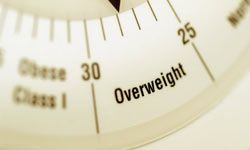We all know that a sleepless night can make us cranky in the morning. However, the other effects of sleep deprivation are far more serious than sleepy eyes and a short temper. Stiffing yourself out of sleep can lead to heart disease, fluctuations in weight and even hallucinations.
Many adults may think they're getting enough shut-eye, but in a major sleep study almost 80 percent of respondents admitted to not getting their prescribed amount of nightly rest. So, what exactly is the right amount of sleep? Research shows that adults need an average of seven to nine hours of sleep a night for optimal functionality. So, that talented dog doing back flips on the late night television might seem intriguing enough, but it's not worth your while if his canine acrobatics are cutting into your precious sleep time.
Advertisement
Unless you're depriving yourself of sleep right now -- in that case, turn off your computer and find the nearest pillow -- read on to see just how much of an impact moderate sleep deprivation can have on your mind and body.


